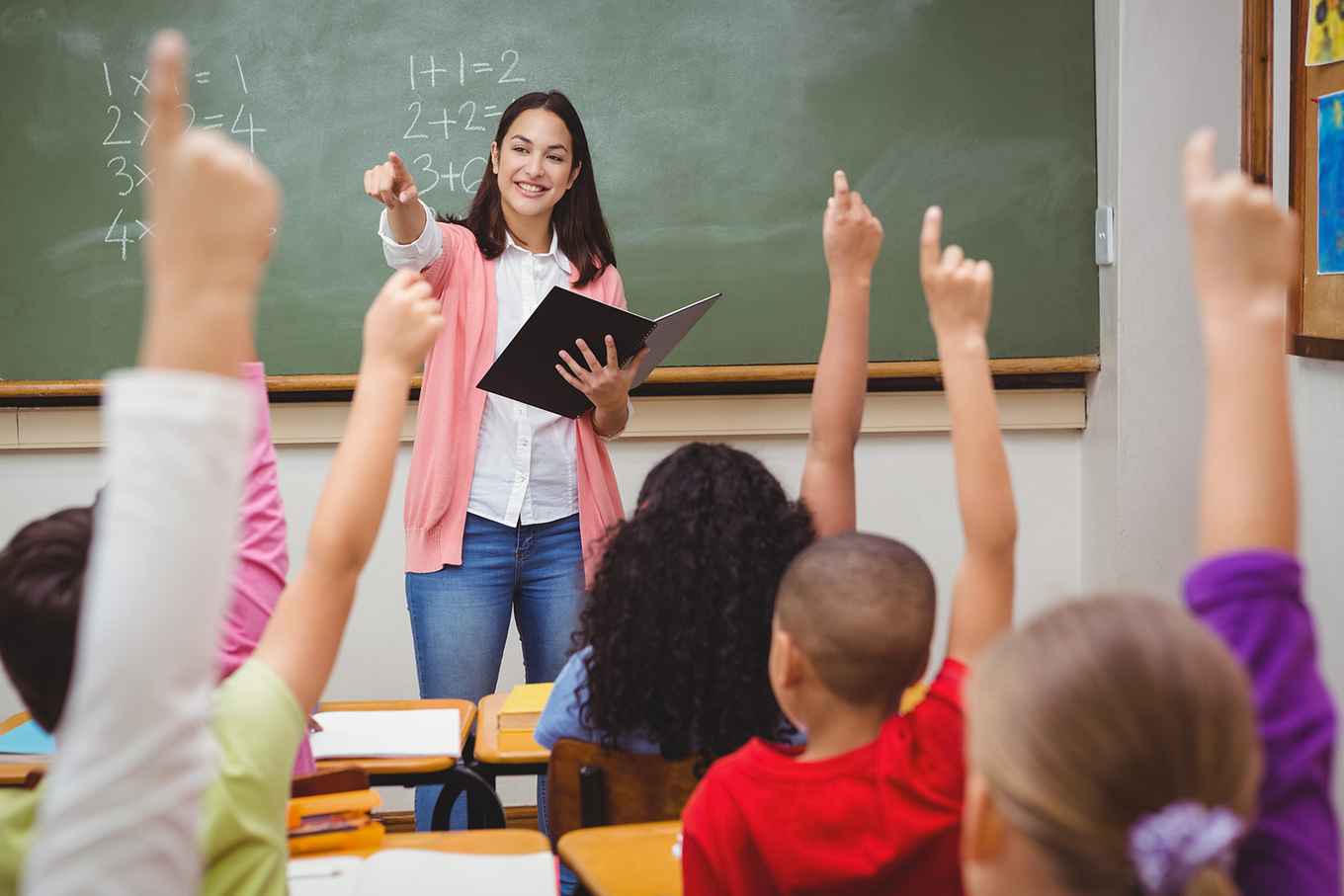Which student emotionally affects the teacher?
20 April 2021

One single school class contains many different kinds of students, from quiet ones to students with behavioural problems. Primary school teachers can experience a wide range of emotions when interacting with these students: from suppressed anger when a student refuses to listen, to feelings of attachment and affection during a good conversation with a student. ‘These momentary emotional interactions may seem small and insignificant’, explains education scientist Janneke de Ruiter. ‘But if they are experienced each day, the emotions can have long-term consequences for the teacher’s well-being and for students’ school engagement.’
De Ruiter has researched emotions experienced by primary school teachers in their interactions with students, how they deal with their emotions, and the role that their general perceptions about specific students may play in these experiences. She concludes that some students have a greater impact on teachers’ emotional well-being than others, especially students whom teachers generally perceive as disruptive. ‘Thus, it can be very profitable in today’s classes to support teachers in their emotional interactions with such students’, concludes De Ruiter.
Recording events and emotions in a diary
De Ruiter conducted six empirical studies based on four different random samples of primary school teachers and their students. She relied on general questionnaires, but also asked teachers to complete diaries throughout the school year, in which they described relevant classroom events with two selected target students and reported on their emotional experiences in response to these students. In the beginning of the school year, teachers had already indicated that they perceived the two students as different in terms of disruptive behavour.
Negative emotions when interpersonal relationships are threatened
Based on her research, De Ruiter concludes that teachers seem to be more emotionally affected by students with relatively high levels of disruptive behaviour and by boys. Moreover, teachers experience strong negative emotions when students’ behaviour threatens interpersonal relationships, for instance when stduents bully other students or are rude to the teacher.
The teacher’s perception colours the experience
A second conclusion drawn by De Ruiter is that a teacher’s emotional experience is coloured by their general perception of the student or the quality of the relationship with the student. If a teacher generally views a student as highly disruptive, a disruptive classroom event with this student would evoke more negative emotions than a similar event with a student considered less disruptive. If a generally disruptive student actually does something positive, teachers seem to experience less enjoyment. And if a student is overly dependent on the teacher, teachers seem to suppress or fake their emotions more often. ‘According to previous research, suppressing or faking emotions could have negative consequences for teachers’ well-being’, contends De Ruiter.
Impaired well-being in conjunction with negative emotions
Last, De Ruiter sees a possible link between teachers’ daily emotional interactions and their occupational well-being. Teachers report lower well-being when they experience strong negative emotions, especially anger. De Ruiter also discovered a small association between teachers’ emotional experiences and the school engagement of individual students. When, for instance, a teacher experiences more negative emotions in response to a student, this student also seems less likely to do their best in school, as judged both by their teacher and their classmates.
‘The findings show that it’s necessary to support primary school teachers in their emotional interactions with specific individual students’, stresses De Ruiter. ‘Due to the great diversity of students in current classrooms, teachers find it hard to fulfil each student’s individual needs. They could use the help of professionals in reflecting on daily experiences with emotionally demanding students. When teachers realise that their general perception of a student plays a role in the emotions they experience, they may be able to better cope with upcoming negative classroom events with this student. Consequently, it may help to improve both the teacher’s well-being and the student’s school engagement.’
Details of the doctoral research
Janneke de Ruiter, The way they make me feel. Exploring teachers' momentary emotional experiences in response to individual students. Doctoral thesis supervisor: H.M.Y. Koomen. Co-supervisor is A.M.G. Poorthuis.
Time and location
Friday 23 April, 16:00. This doctoral conferral will take place online. The doctoral conferral can be viewed live on YouTube at the indicated time. After the end of the conferral, the link will be deactivated and the livestream removed.